
After seeing the lovely Postojna and the amazing Predjama castle, we headed to the south, to the small Slovenian coast: To Koper, our biggest port and 6th biggest Slovenian town. We needed about 1h, because there's a part from Predjama castle to the highway, where the road is narrow and winding and you can't drive fast. Once we reached Razdrto, a small village, which is a major interchange in this part of Slovenia, we went on the highway to Koper and 30min later we were there. Here are some photos from the highway to Koper:
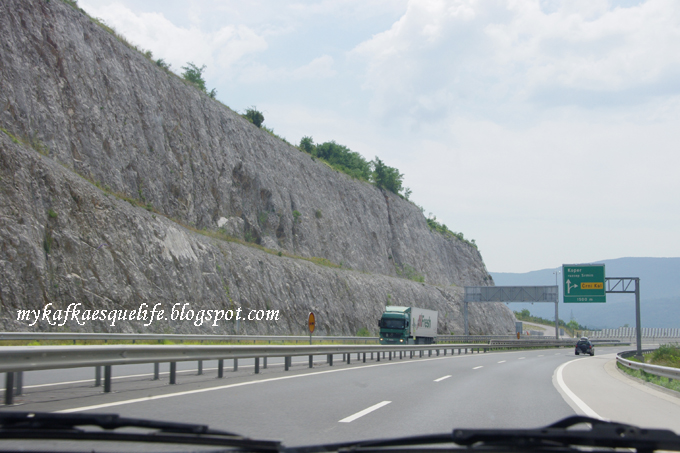
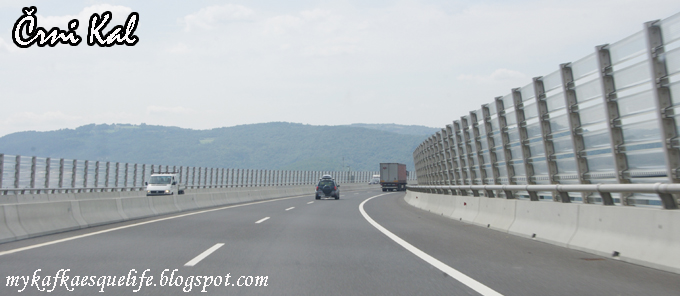
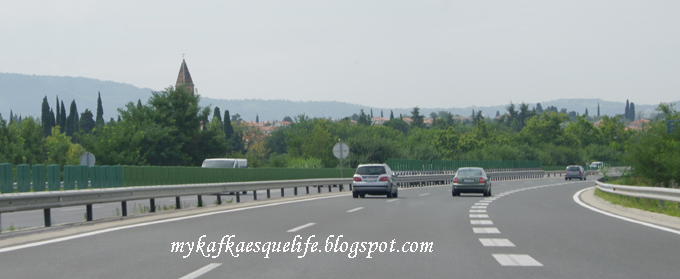
Close to Koper. The village up front is called Bertoki.
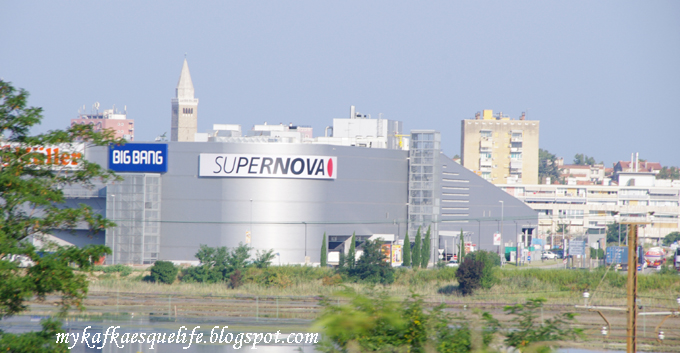
We went to this shopping mall called Supernova. It's the biggest in Koper and very easy to spot, when you drive inside Koper. We had lunch here and a break, before we explored...
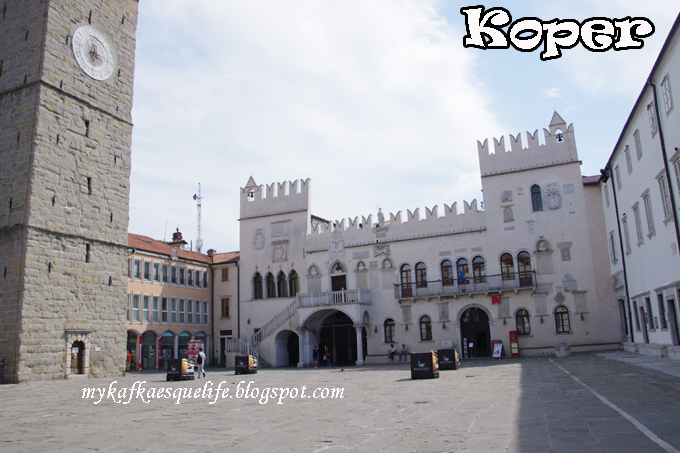
View Larger Map
Koper (Capodistria in Italian, pronounced as ) is the biggest Slovenian port and currently the 6th biggest town in Slovenia (24800 inhabitants, source). But it's definitely our 3rd most important (after Ljubljana and Maribor), because it has a lot of potential to develop in a big industrial center not only in Slovenia, but in the region. It has a potential to become a city. However, when you come to Koper, you will feel as if you've come to a small town. Although heavily industrial, Koper has a certain charm. And that's especially felt in the narrow lanes of the historic center. Just a mere glance over the map will make it obvious that the old part of Koper is somewhat disconnected with the rest of the town. That's because it used to be an island.

Koper is one of the oldest towns in Slovenia. In the times of the ancient Greece (8th to 2nd century BC) the settlement was called Aegida. During the Roman times in this area (2nd century BC to 6th century AC) Koper was named Capris and briefly Justinopolis (in honor to Byzantine Justinian II.). Some other versions of the name Capris were Caprea, Capre or Insula Capraria (year 599) lit. "Goat Island" and the Slovenian name Koper, Croatian Kopar and German Gafers come from this word. I've read somewhere, that some people say Koper wasn't named after Latin caper, capri for "goat", but from Greek kopros (κόπρος) for "dung, feces", because the numerous muddy and smelly waters between the island and the mainland. In addition to Capris, Koper was given another name by the Patriarchs of Aquileia: Caput Histrae ("The head of Istria" or "The capital of Istria". Istria is the biggest peninsula in the Adriatic sea). The Venitians, who ruled over Koper from 1279 to 1797, named the town Capodistria, whic is still Koper's official Italian name today.
Ever since Koper fell under the Venetian rule (from 13th to 18th century) and experienced a cultural and economic boom, the majority of the town was Italian. In the 20th century things begun to change. Two world wars, the end of the Austrian monarchy, the rise of Italian fascism and Yugoslav communism totally changed the structure of the town. Koper became part of Yugoslavia (and Slovenia) in 1954 and most of the Italian population moved to Italy. In the year 1900 out of 7830 inhabitants of Koper 92% were Italian, the rest were Slovenes, Croatians and Germans. In 2002 Koper's municipality had 47500 inhabitants. 74% were Slovenian, only 2% were Italian, there other 24% were Croatians, Serbs and Bosnians. (Info sources: Koper.si, Koper wiki.) The municipality Koper is bilingual, everything is written in Slovenian and Italian, from signboards, traffic signs to official documents. Even though one quarter of Koper's population has Serbian or Croatian roots, they don't enjoy such rights, because they're not a historic minority like the Italians. Most of them migrated to Koper between 1954-1991 (for economical reasons), when Slovenia was part of Yugoslavia, a multi-ethnic state, that eventually failed. After 1991, when Slovenia became independent, Koper is experiencing another economic and cultural boom, because of the quickly developing port, which is after Trieste's port one of the biggest in the region.
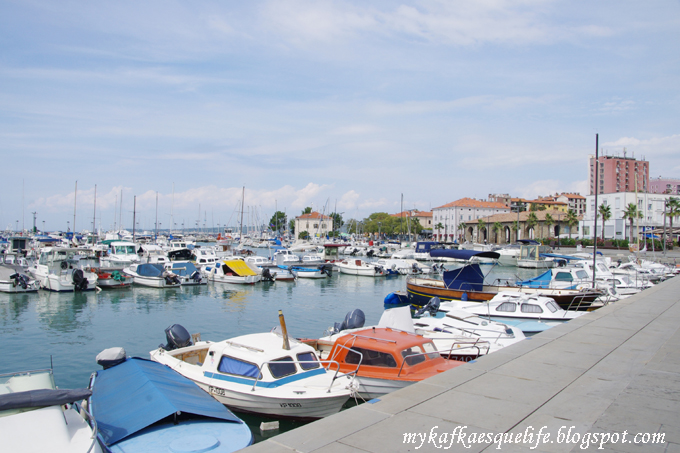
After my girlfriend and I had our lunch in Supernova, we drove near Koper's center. There are many parking places all around the historic part, so we had no problems with parking. It was past noon and really hot, which was a bit hard to bear, but we still wanted to take some photos and see what Koper has to offer. We first walked around the marina (Harbour for boats and yachts). Here are some photos:
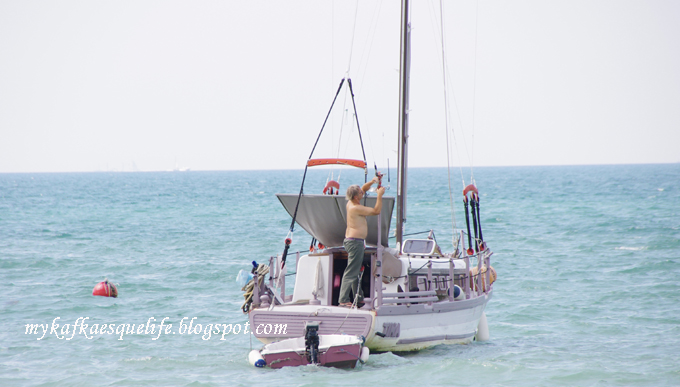
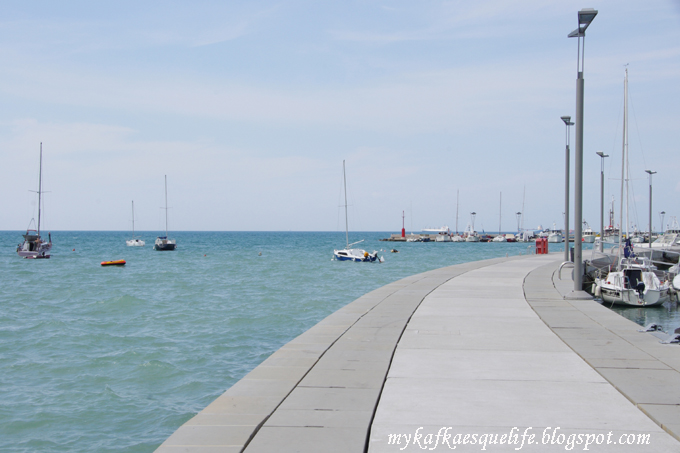
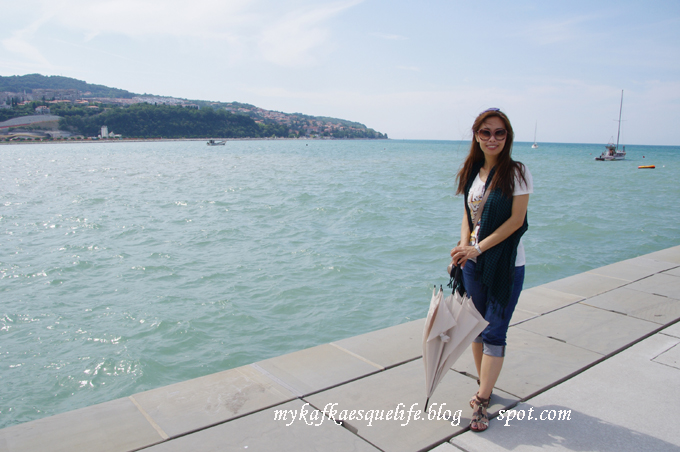
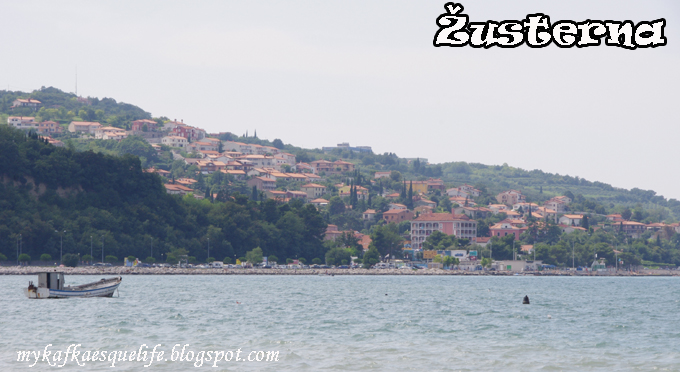
Žusterna (Italian Giusterna) is the most Western part of Koper and lays on a steep hill with a view to Koper's historic center. This part is very clean and those who have houses here are usually very rich. I know that, because I used to live here for a while in 2002/2003. My ex-girlfriend was from here. There is a small public bath area in Žusterna as well as a hotel with an "aqua park" (a recreational and entertainment park). I have good memories of this part of Koper.
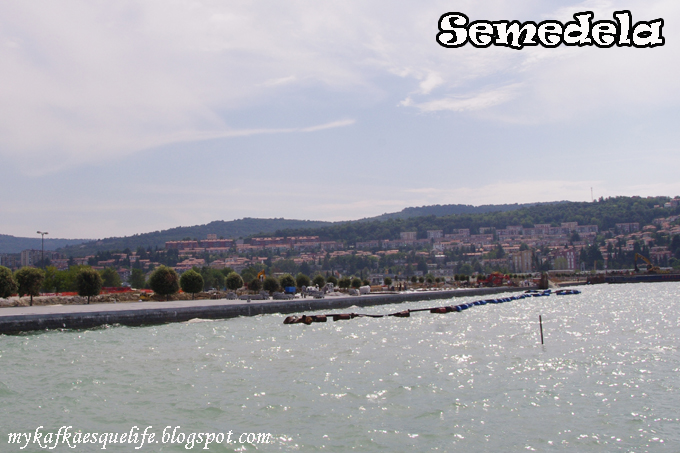
Semedela (Italian Semedella) is a very long stretched part of Koper on the hills behind the historic center. Here are many residential blocks. Most of Koper's population is living here.
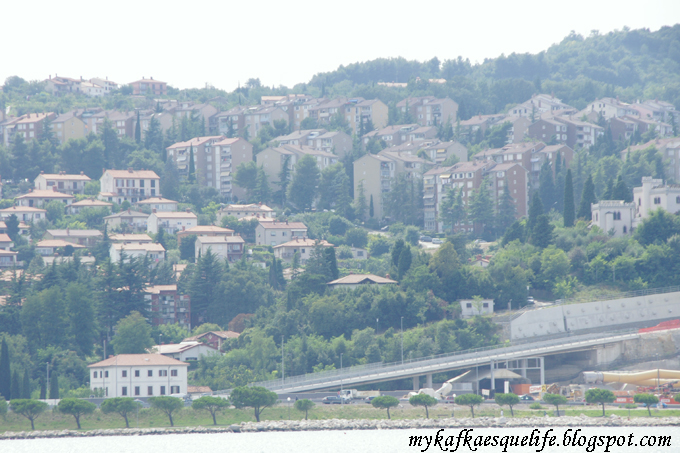
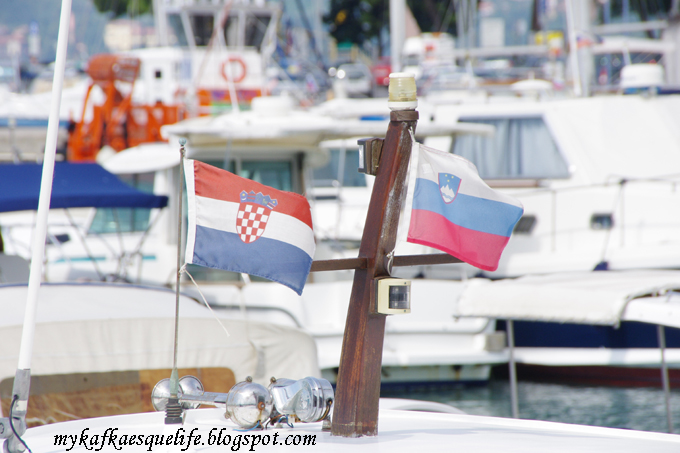

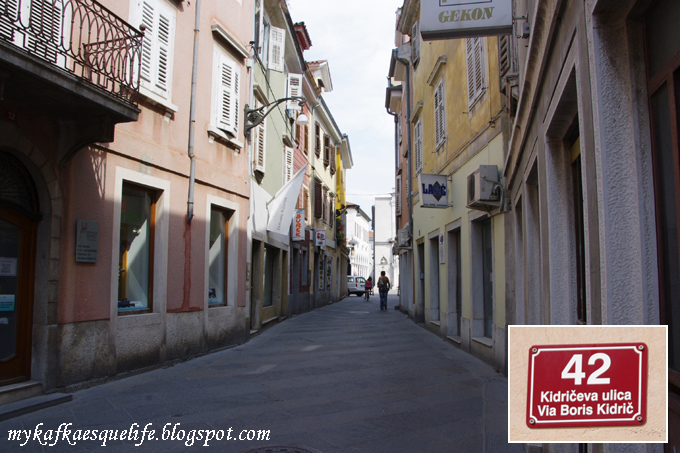
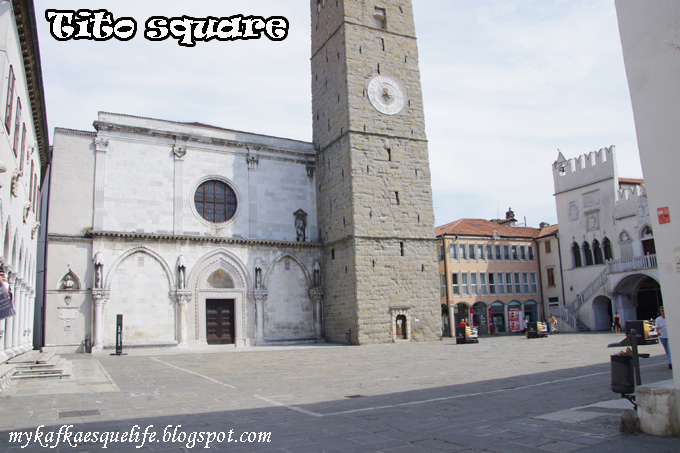
There are many historic buildings in this square:
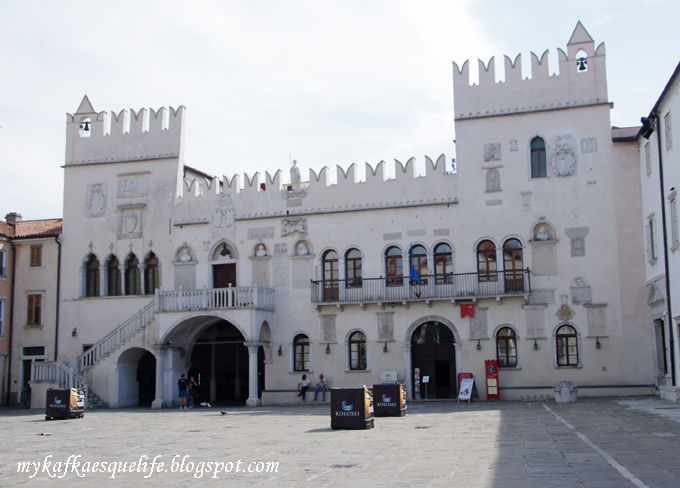
Praetorian Palace (Slovenian Pretorska palača). More here>>
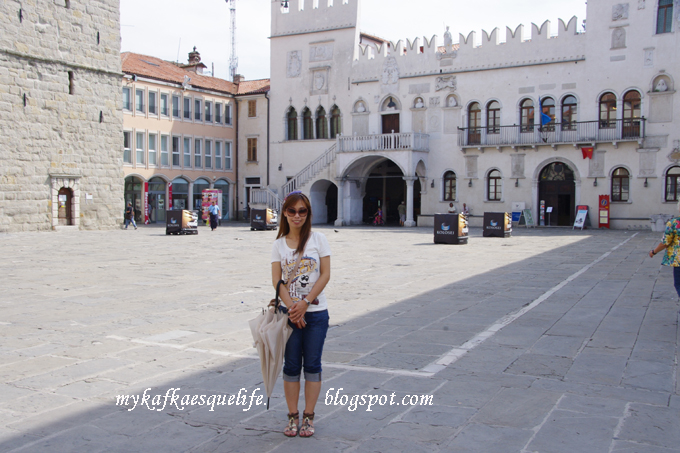
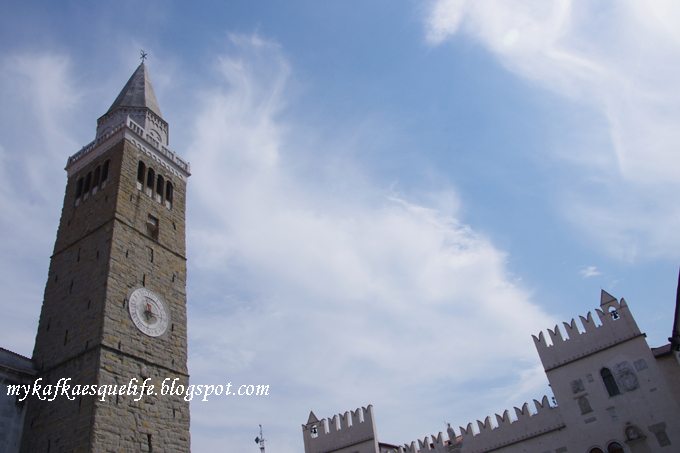
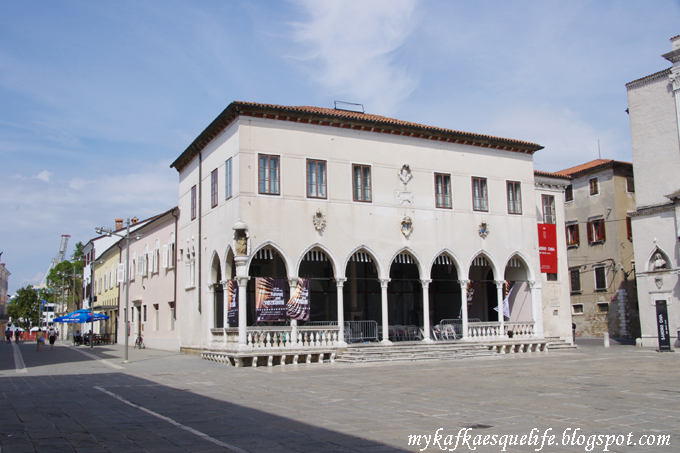
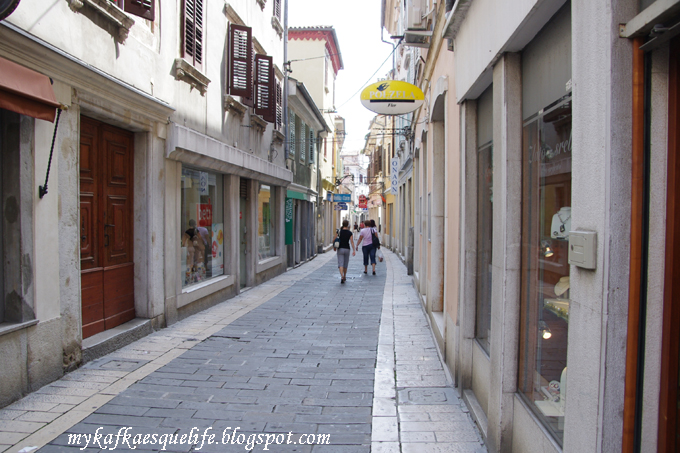
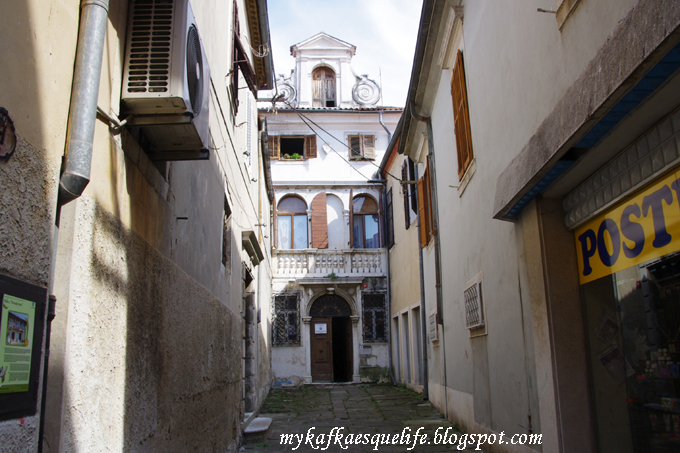
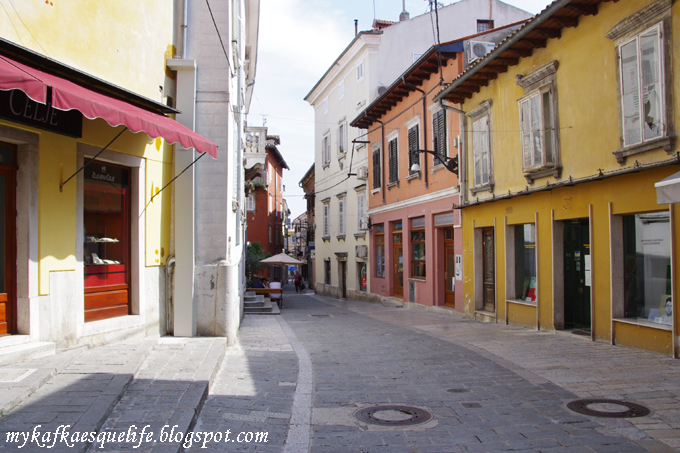
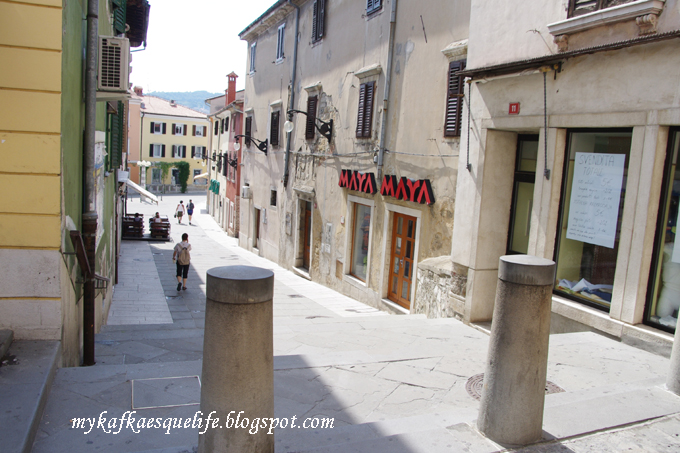
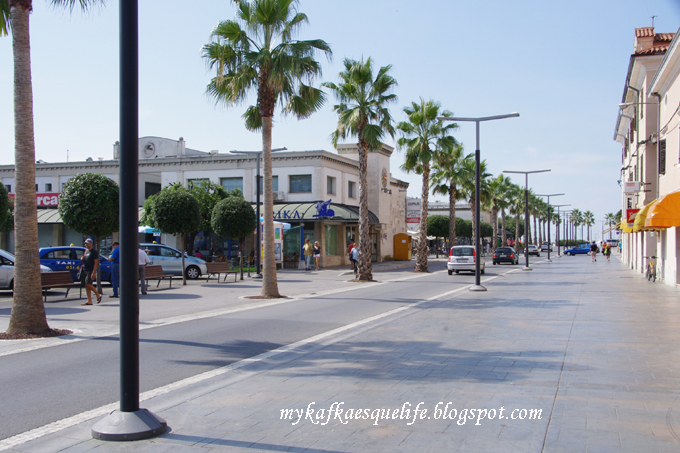
We only saw one half of Koper's historic center, because we didn't have a lot of time (I didn't want to pay more for parking), plus it was very hot that day. And we had Izola, Sečovlje and Piran ahead of us. I think Koper is big enough to walk around for one afternoon, but we only walked for an hour.
We soon left for Izola, another lovely town on the Slovenian coast, but before that I wanted to drive my girl around Semedela and Žusterna, the two residential areas of Koper. I made a terrible mistake, because that part of Koper is like a maze and the roads and streets are so steep, I got stuck in some tricky situations, where my car was stuck somewhere and I had to find my way back. I recommend you to not drive around there, unless you know what you are doing.
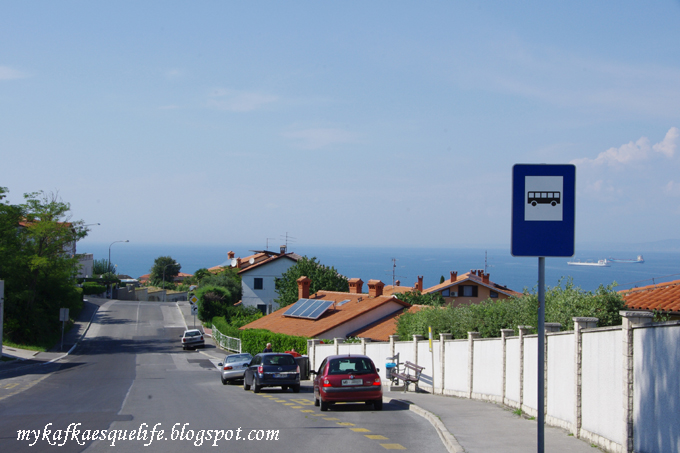
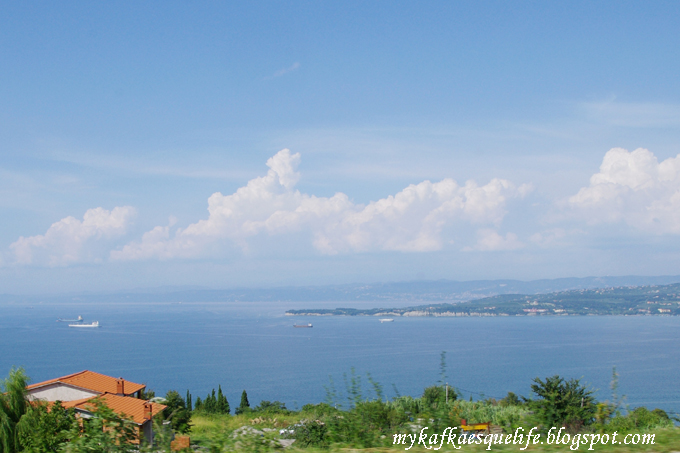
After a brief stopover in Žusterna, we drove to Izola, our next destination, which was only 10min away. Below is a panoramic photo, which my lovely girlfriend managed to take, while I was driving.
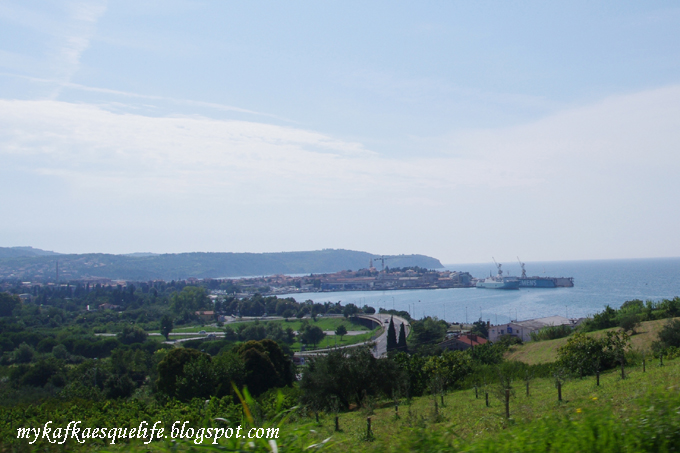
All in all, Koper is always worth a visit, because it's big and important for Slovenia and because it has a rich history. And for me, it brought back fond memories from 7 years ago, when I was walking around those old narrow streets almost every day. It's also interesting to see how much has changed in Koper in the recent years: The city is one big construction site. So much has been renovated, so many new shopping malls have been built. The town is expanding. Can't wait to see what happens in the next 5 years where I hopefully manage to revisit the town.
My rating of Koper:
Great place for photos ✰✰✰✰✰
Well preserved and clean ✰✰✰✰✰
Toilets, parking, souvenirs ✰✰✰✰✰
Friendly to tourists ✰✰✰✰✰
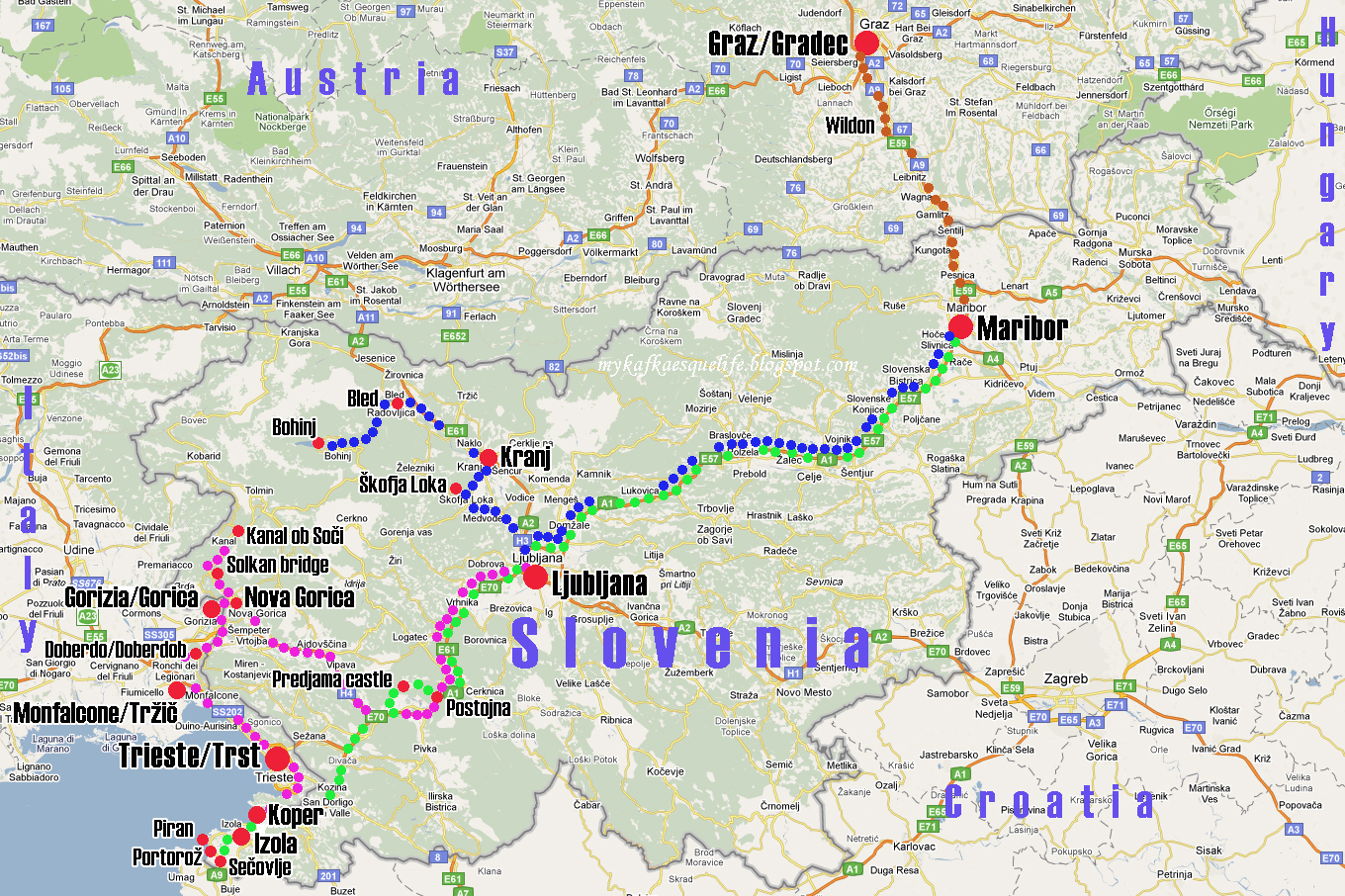



No comments:
Post a Comment